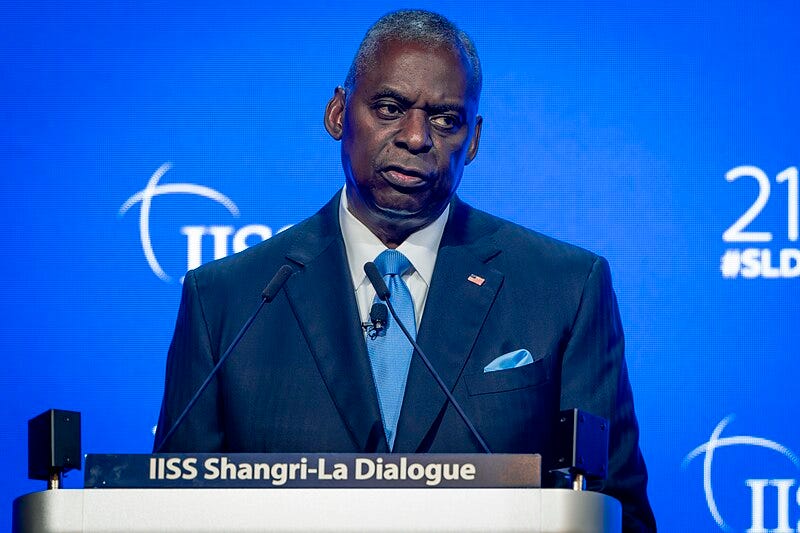What Good is the Shangri-La Dialogue?
An institution that focuses on Asian security should make Asia more secure. Right?
Military minds from all over Asia (and Washington) have convened once again at the Shangri-La Dialogue (SLD). This time last year, I wrote about how to think about this multilateral forum, and am re-upping that below. Holds up well as a primer on the SLD, Asian regionalism, and the problem of militarism across Asia. ✌️
Every year, defense officials, think tankers, and journalists who specialize in Asia converge on the Shangri-La Hotel in Singapore for what’s arguably the grandest “Asian Security Summit” of them all—The Shangri-La Dialogue (SLD).
Hosted by the International Institute of Strategic Studies (IISS)—a British think tank—the SLD stands out as a policymaker favorite among a thicket of regional institutions and dialogues. Not for the reason you’d think.
Yes, it’s a luxurious setting, and the Shangri-La Hotel puts on a fantastic breakfast. And yes, the SLD is a rare Track One (official, government-to-government) dialogue that focuses squarely on Asian security.
But the SLD has also succeeded in creating a kind of policymaker FOMO—a feeling that, if you’re a defense minister, you really should be making an appearance and giving a speech of some kind. Among the less-than 1% of people who belong to this demographic, it has cultural capital. That’s remarkable for an institution that’s only existed since 2002.
I’m not in attendance this year, and I do far fewer of these glitzy events than during my pre-scholar days, when it was basically all that I did. Why?
Realistically, I don’t have time. I’m able to write as much as I do because I don’t travel as much as I once did. I’m also viewed as a bit more radical than your average Asian security scholar—a reputation that I think says more about the milieu than it does me. I’m pragmatic, concerned with historicizing and contextualizing security to better grasp root causes and remedies; that puts me at odds with the majority of those who mistake their vocation as fetishizing the next “great” war under the guise of wanting to avoid it.
But I also have mixed feelings about the merits of events like SLD. They’re not a public good. They have some baggage. And by any measure, Asian security—specifically the Asian peace—has been deteriorating coincident with the SLD’s existence, which raises the question:
Nevertheless, I have an affinity for confabs like these because their cost is low and upside potential (though mostly unrealized) is tremendous. By itself, of course, it’s nothing. But as a jewel among an alphabet soup of regional institutions, it has greater purpose.
Let me explain.



